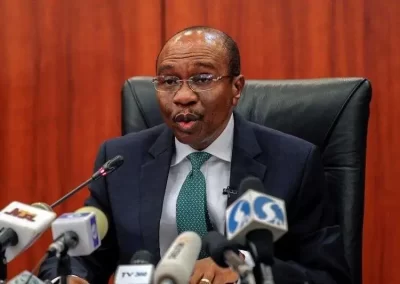Positive Outlook For Nigerian Economy In 2022, Expert Says
In late 2020, the International Monetary Fund (IMF) had projected that the Nigerian economy, which was just emerging from a recession occasioned by the COVID-19 pandemic would record a 1.1 per cent growth in 2021.
However, projections have been so far revised upward to 2.3 per cent and then a further upward revision to 2.7 per cent.
Basically, the Nigerian economy has been able to surpass expectations as regards recovery from the COVID-19 induced recession.
In 2020, the Nigerian economy had suffered two consecutive quarters of recession. Economic activities had however quickly picked up with government increasing spendings and lifting restrictions which had impeded business activites.
The oil sector, on the other hand, continued in its negative growth trend, declining by 10.73 per cent in the quarter. While the services sector expanded by 8.41 per cent, the growth of agriculture slowed further to 1.2 per cent in the quarter and the industrial sector declined by 1.6 per cent due to the contraction in the oil sector.
Inflation figures which started the year around 16 per cent had risen beyond 18 per cent in May, as food prices shot up but had subsided as increase in prices slowed. By November, inflation had declined for eight straight months to 15.40 per cent from 15.99 per cent in October.
Meanwhile, the annual core inflation which excludes the prices of agriculture, rose to 13.85 per cent, the highest since April 2017. Food inflation which had risen beyond 23 per cent had also slowed to 17 per cent by November 2021.
Looking ahead into 2022, analysts say they expect the economy to improve. According to chief executive of Centre For Promotion of Private Enterprise, an economist and former director general of the Lagos Chamber of Commerce and Industry (LCCI), Dr Muda Yusuf, the outlook for the Nigerian economy in 2022 is largely positive.
However, he said GDP growth would remain fragile and projected at three per cent threshold. “The key expected drivers of growth include sustained recovery of global oil price. We expect that the average oil price in 2022 will exceed the budgeted benchmark of $62 per barrel, offering some fiscal headroom.
“ This would be powered by higher energy demand driven by the recovery of economic activities globally,” he said.


